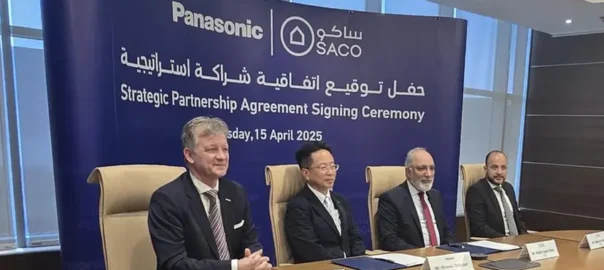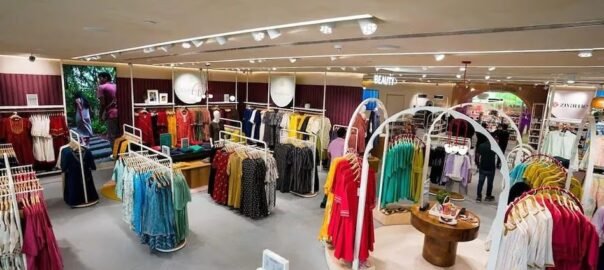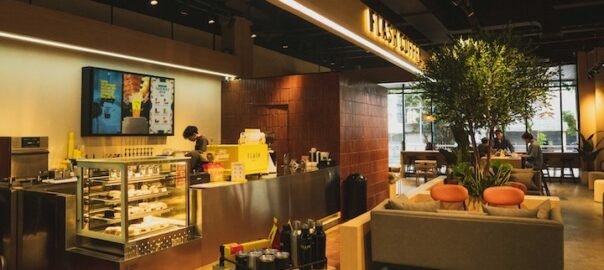Stakeholders have backed President Bola Ahmed Tinubu’s ban on foreign goods, noting that it would boost Dangote Refinery, Innoson vehicles manufacturing, and other indigenous businesses amid the slipping Nigerian economy.
The Chief Executive Officer of the Centre for the Promotion of Private Enterprise (CPPE), Muda Yusuf, the CEO of SD & D Capital Management, Gbolade Idakolo and the Board of Trustees Chairman of the Coalition of South-South Chambers of Commerce and National President Petroleum Products Retail Owners Association of Nigeria, Billy Gillis-Harry, made their stance known in separate interviews with DAILY POST on Monday.
This is following the decision by the federal executive council chaired by President Bola Ahmed Tinubu at the presidential villa on Monday to ban foreign goods.
DAILY POST reports that one of the decisions reached by the FEC was a ban on the procurement of foreign goods or services by federal government ministries, departments, and agencies.
Announcing the development, the Minister of Information and National Orientation, Mohammed Idris, told journalists at the presidential villa that the initiative, tagged the Nigeria First Policy, is aimed at strengthening the country’s economy by prioritising locally manufactured goods and services.
“The Nigeria First policy is expected to become the cornerstone of the administration’s economic strategy, especially as the government pushes forward with its industrialisation agenda and import-substitution goals,” he said.
Minister Idris said to give legal backing to the policy, the Attorney General of the Federation and Minister of Justice has been instructed to draft an Executive Order.
With the policy in place, domestic manufacturers and producers such as Dangote Refinery, Sugar, Innoson Motors, and others would now have an edge over their foreign competitors.
By implication, the policy, if drafted into an executive order and implemented, would further lead to a drastic drop in import bills, which stood at N16.6 trillion in the last quarter of 2024.
The policy drive comes as the International Monetary Fund’s World Economic Outlook estimates Nigeria’s gross domestic product at $253 billion based on current prices this year, lagging behind energy-rich Algeria at $267 billion, Egypt at $348 billion, and South Africa at $373 billion.
CPPE calls for implementation by FG, states
CPPE CEO has urged that the implementation of the ban on foreign goods or services be done across the federal government and states.
According to Yusuf, the policy would have a multiplier effect on Nigeria’s gross domestic product and conserve foreign exchange.
He added that the policy should be broadened to include a ban on foreign services.
“One of the ways we can help the revitalisation of the economy is to prioritise what is made domestically.
“It helps to boost Nigeria’s gross domestic product, create more jobs, create a very considerable multiplier effect, and help to conserve foreign exchange.
“It has a lot of benefits if the country can improve on patronage of what is produced locally.
“The procurement policy of the government will drive patronage of goods produced locally. This procurement policy should not only be at the federal level but also at the subnational level. There are not only goods but also services.
“We have a situation where service imports could be as high as $10,000 to $15 billion annually.
“We should also look at the import situation for services, not just goods.
“We have young people who are doing well in information technology, software development, creative advertising concepts, and others.
Let’s ensure that we have a policy that encourages the patronage of our professionals.
“Also, for goods, things that are produced locally should be prioritised. Things like furniture. We have no business importing furniture into the country.
“We are producing enough petrol products. Why are we still importing petroleum products?
“The scope of the policy should be broadened to cover some elements of trade policy beyond procurement. It should cover some elements of trade policies. So that we can have some measures of protection for our manufacturers.
“The country has no reason to import generic pharmaceutical products or uniforms.
“I am not saying we should go extreme like in the United States of America.
“What is most important is the implementation because we had similar policies like this before that were not implemented effectively,” he stated.
Nigeria’s economy will soar with ban on foreign goods — Idakolo
On his part, Idakolo said the policy, if implemented, would make Nigeria’s economy flourish.
He noted that the policy will lead to reduced use of foreign exchange for imports and bring down the strain on the country’s currency, the naira.
“This policy is expected to yield positive results because it will strengthen local production and reduce importation of foreign goods, thereby reducing the strain on the naira.
“This policy will help the country retain more foreign currency that would have been utilised for importation.
“Nigeria reported a balance of trade surplus in 2024, a feat that has not been achieved in the past 10 years, and this is largely due to reduced importation of foreign goods and increased export of local production.
“This trade surplus can be sustained in 2025 if this policy is properly implemented.
“This policy is expected to be a game changer that will eventually strengthen the naira,” he told DAILY POST.
Ban on foreign goods may propel Nigeria to become world power — PETROAN, Gillis-Harry
Similarly, the national president of the Petroleum Retailers Outlets Owners Association of Nigeria backed the FG’s decision to ban foreign goods.
He noted that every Nigerian must ensure that the policy is implemented from top to bottom.
“This is the best news I have heard in my 65 years of being in Nigeria.
“I encourage it and endorse it as Board of Trustees Chairman of the coalition of South-South Chambers of Commerce and National President Petroleum Products Retail Owners Association of Nigeria.
“Let’s have the courage to make sure that this is obeyed from top to bottom, from the presidency to the least Nigerian.
“Sacrifices need to be made for Nigeria to get out of its current economic quagmire.
“Nigeria will be a world power starting from this policy,” he stated.
Author Credits- Ogaga Ariemu (DAILY POST)










